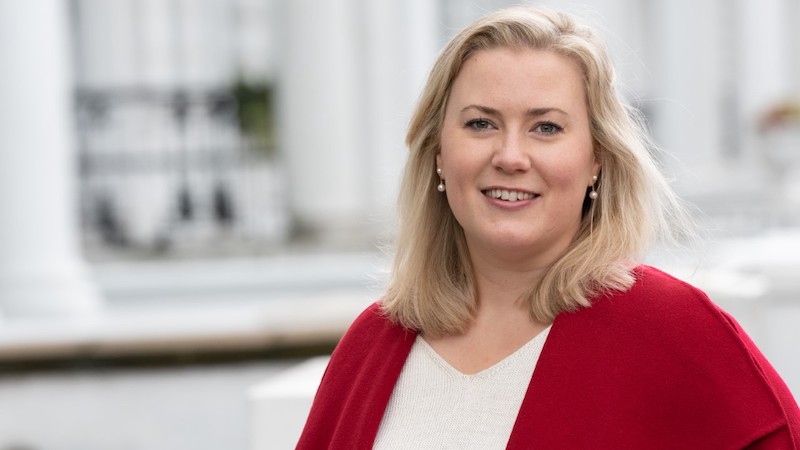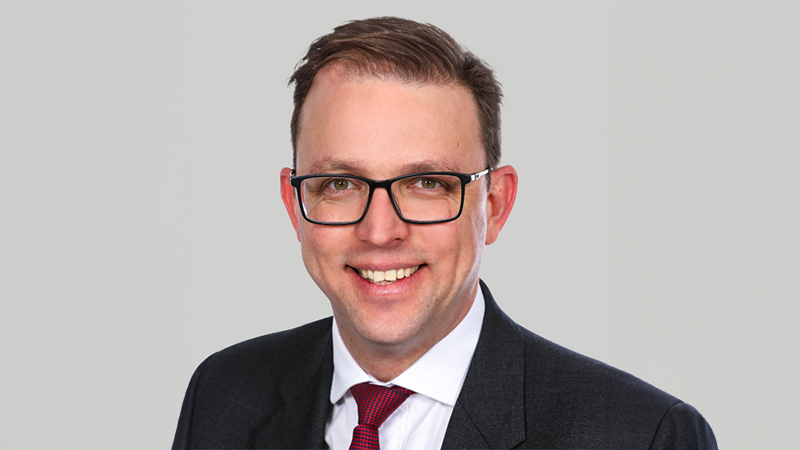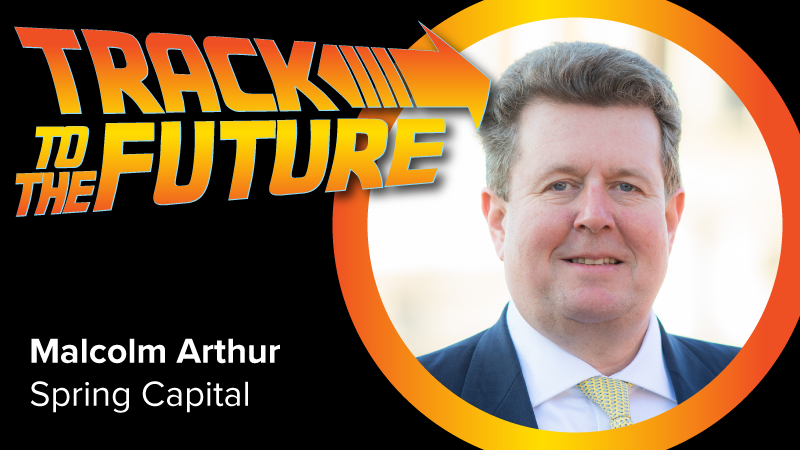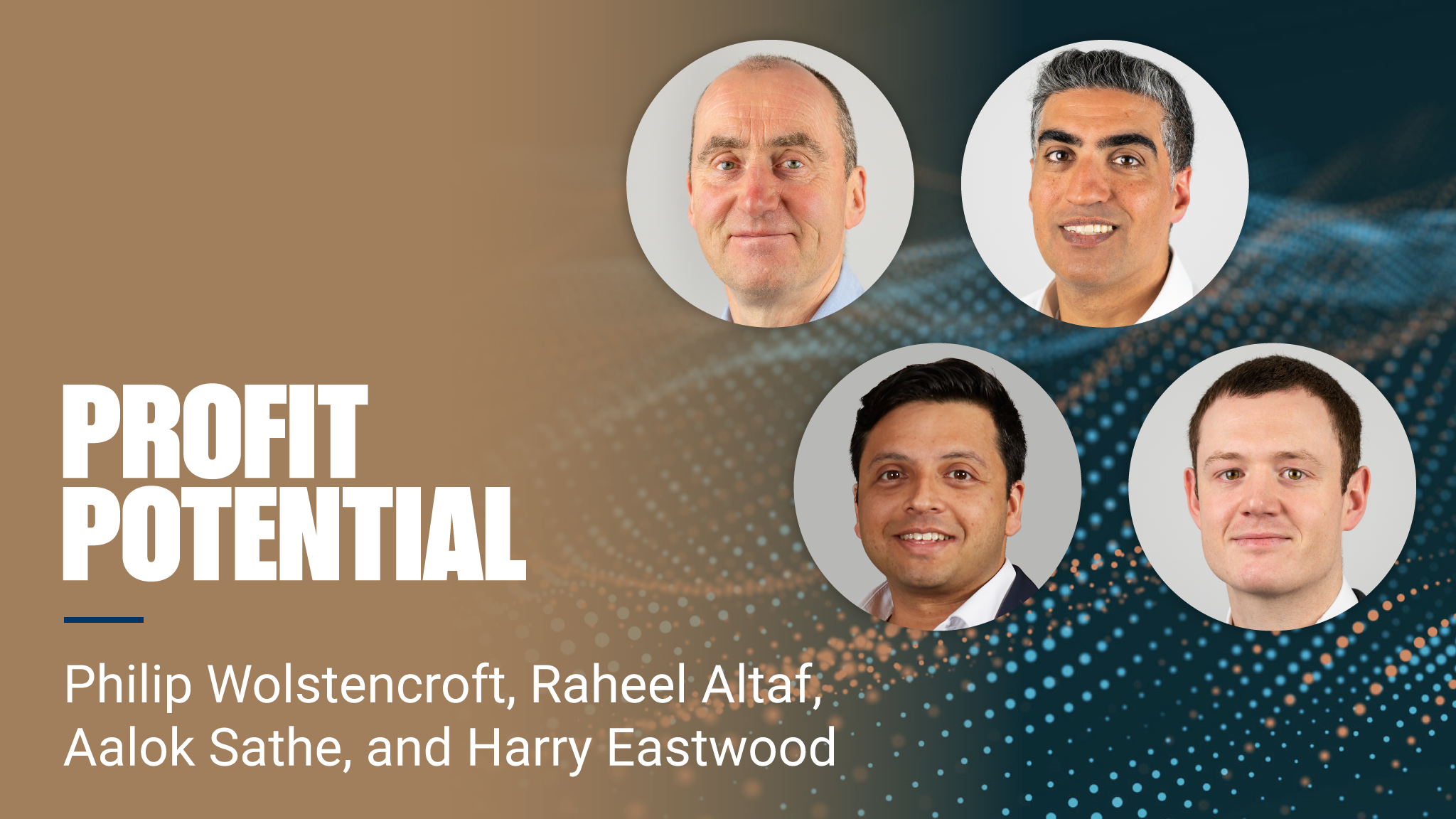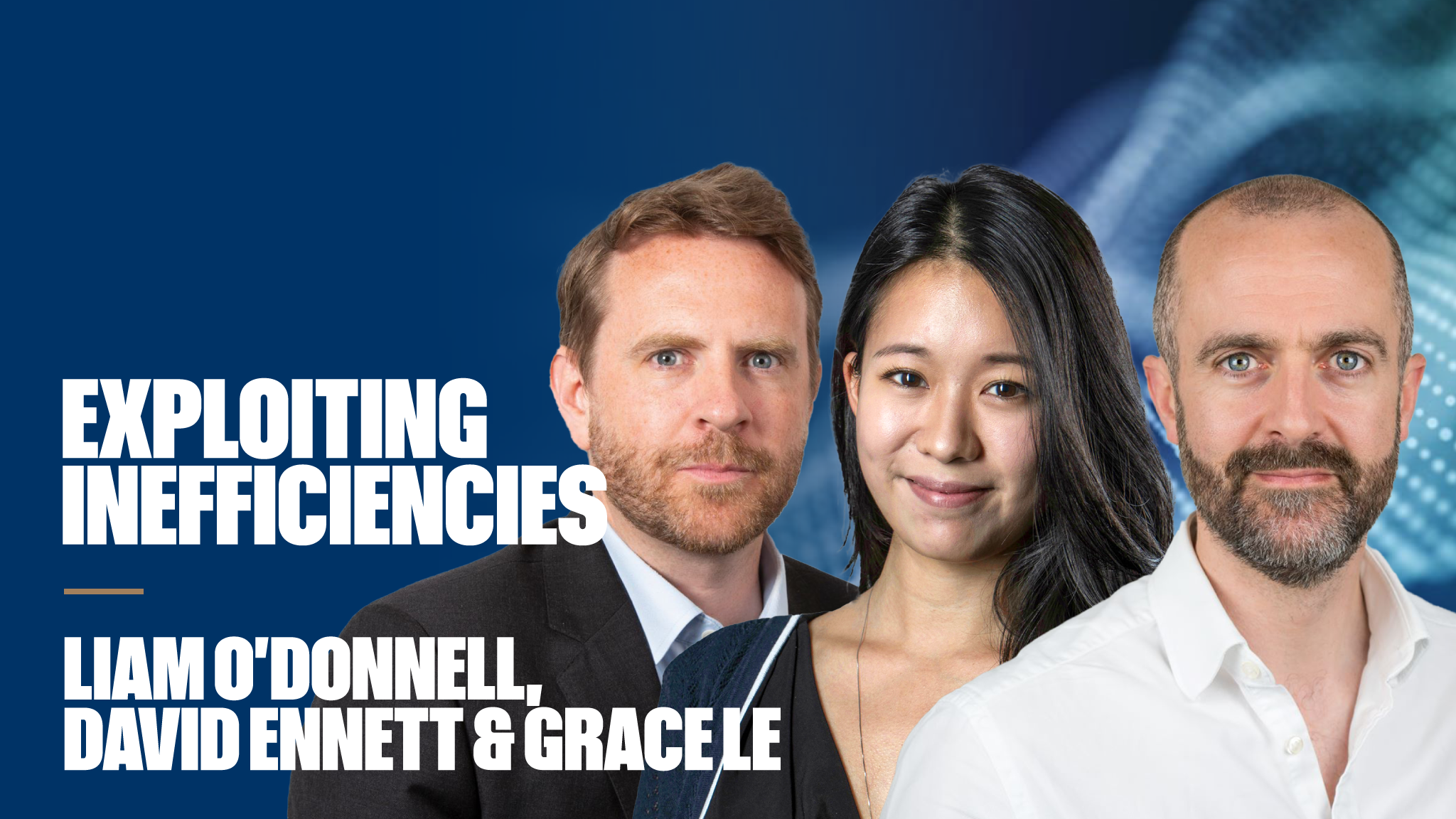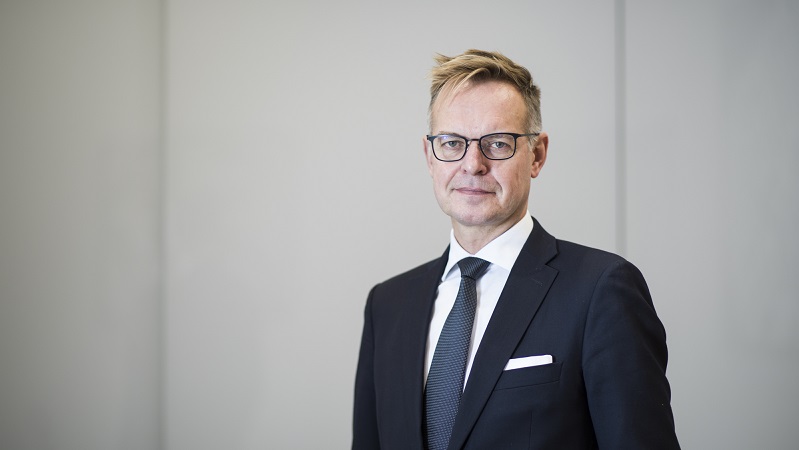“It’s been a lot of fun,” says Adrian Gosden on what has been a torrid year for the UK Equity Income sector. “If you’re not having fun in this industry, it’s grim because you constantly get given hindsight.”
Portfolio Adviser last spoke with the manager of the Gam UK Equity Income Fund in October last year, shortly after the fund’s launch when Gosden (pictured above) stoically outlined his commitment to the firm by saying this would be the last fund he runs.
A lot has happened to Gam as a corporate entity since then. In July this year, the group suspended one of its top managers, Tim Haywood, and liquidated his absolute return bond fund range, wiping CHF3.2bn (£2.5bn) off its AUM.
Last month, Gam chief executive Alexander Friedman stepped down amid the debacle, with the board saying the next stage of the company’s evolution would be best served by new leadership. It said it fully supported Friedman in the decision to suspend Haywood.
Recent events have no doubt prompted investors to ask questions about more than just the fund, but I’m under strict instructions from Gam’s PR representative not to quiz Gosden on corporate developments. It is fair to say, however, that he seems every bit as enthusiastic as when we last spoke about UK equity income and remains fully committed to the business.
“Few people use UK equity income funds for a year,” he says. “They use them because they believe in outperforming the All-Share over a period and they want the dividend cheque paid to them. This requires a fund manager to stand up and say, ‘I’m here to do it. I’m putting my own money into it and this is how it’s going to be done’.”
For Gosden and co-manager Chris Morrison, it’s very much a case of ‘year one done, job done’. The fund is placed sixth out of the 87 funds in the IA’s UK Equity Income sector on a total return basis and over the past year, has returned 0.77% in sterling terms versus the IA sector’s -3.31% and the FTSE All Share’s -1.44%, according to FE.

Bucking the trend
The outperformance is no mean feat during a period when Brexit uncertainty has perpetuated a negative view of the UK.
According to the Bank of America Merrill Lynch’s fund manager survey for October, a net 27% of respondents held an underweight position in UK equities, an increase of eight percentage points from September.
“The UK equity sector is dismal, and it’s dismal because of Brexit,” says Gosden. “It’s very hard to get people to invest in UK equity income because that requires a contrarian mentality. It requires buying something while it’s out-of-favour.”
Since launch, the Gam UK Equity Income Fund has amassed £150m in AUM, which for Gosden is a “pretty good number”, given it’s difficult to start funds from scratch in this environment. There is, however, part of him that is disappointed it’s not a higher figure.
“If you said, ‘What’s your number at the end of the year?’ I’d have gone higher because I’m an optimist. But I know a lot of people have said £150m is good. I thought it should be more but that’s just life.”
To deliver its outperformance, the portfolio has required some tweaking from how it looked at launch.
The biggest change came in September, when Gosden and Morrison cut exposure to oil & gas from 10% to 5%. The pair are reluctant to talk about specific stocks but the portfolio now has no oil & gas companies among the top 10 holdings because Gosden says, despite those shares doing well on a rising oil price, the risk/reward balance has changed, prompting them to take profits.
The portfolio also has a more defensive slant after the duo put a larger expression in pharmaceuticals, tobacco and utilities, which have a more robust income profile, but Gosden and Morrison avoid the big international earners on cost grounds.
“Those overseas earners are just too expensive for us,” says Morrison. “You would feel some of the big stocks in those defensive areas might also have that banner attached to them, but there are still opportunities.”
Elsewhere, they like the telecoms sector, which has downgraded a lot recently. The portfolio’s lead position is in a telecoms company that was not in the portfolio when the fund launched.
A shift in focus
Gosden admits it isn’t obvious how the fund will evolve over the next 12 months but he is confident that his and Morrison’s process of meeting with companies and taking a granular approach to investing should provide some clarity.
“Trying to be macro has become very complex and I wouldn’t like to have that as my tool to choose my shares because one day you’re choosing housebuilders, the next you don’t want any of them.”
He says the first year was about navigating the short-term noise around Brexit and the specifics of the deal, whereas moving into the fund’s second year the focus will shift towards investors asking whether, as Brexit is finally implemented, the fund does what it says on the tin and can adapt to whatever comes its way.
“We have positioned the portfolio more for an orderly Brexit. However, it does not contain things like housebuilders or asset managers, areas that have been pretty cut up by what’s happened,” he says.
Gosden explains the crux of the fund is generating a dividend greater than the market. This is currently somewhere between 7% and 8%. Half of this comes from the dividend and the other half from capital return. But their total return approach is not just about chasing high dividends.
“We’re meeting companies all the time,” says Morrison, “which is really important. At the heart of those meetings is the talk about cashflow, to be able to fund a progressive dividend. But we want them to be re-investing as well.”
The fund is split 50% large cap, 30% mid and 20% small. It is in the mid-cap space where the duo identifies firms that are particularly well placed to both fund and re-invest dividends.
Gosden says: “We like to access mid and small companies as they are really evolving and management plays a vital role in the direction of growth. You also get the chance for corporate activity where private equity or other listed companies bid for shares at a reasonable premium.”
One example of this was the merger of Clydesdale and Yorkshire Bank with Virgin Money earlier this year. Virgin Money was a holding in the UK Equity Income Fund and Gosden sold out of the position after Clydesdale bid a premium for the Virgin shares.
“Rather than wait around, we take that money and look for a new idea to bring about a similar return profile,” he says.
An even split
According to Morrison, the two managers are “interchangeable” and look at every stock and attend each company meeting together. “If we were to meet a client on the street and talk about any stock in the portfolio, either of us could do it,” he says.
“We do the management meetings together, run through the valuations and come to a conclusion. That’s where the short line of communication is really good, because you can action it.”

Gosden adds: “Chris’s technical capabilities are different to my old war stories about what happened in the ’96 biotech boom but they all play a role in the team.”
Gosden also brings another skill to the table. Before joining Gam, he spent 13 years at Artemis, where he co-ran the High Income Fund with Alex Ralph. During this time, he gained an in-depth understanding of fixed-income markets: an expertise he has brought across to Gam.
“It became part of my DNA to say, ‘OK, if we’re going to look at, for example, Land Securities as a company, you have the dividends it pays but it also has a lot of debt next to it. Why don’t we see what the debt people think about the building, rather than just what we think about the building?’ That’s how we go about any investment that has listed debt.”
“It’s just another lens to look at your equity investment,” says Morrison.
The IA stipulates that to be included in the sector a fund must have 80% in UK equities, so in theory the fund is free to hold up to 20% in fixed income and cash. However, Gosden and Morrison assure me they are not about to turn the fund into a multi-asset strategy. The debt weighting is only 1% of the portfolio, mainly because interest rates have been so low and most securities have been trading at a premium.
“You’ve got to be true to what you are. If people buy a UK equity income fund, they don’t want it crammed full of fixed income,” says Gosden. “As fund managers we like to think of ourselves as superheroes, but we’re not. We should stick to what we do and not be embarrassed about that.”
But despite how unloved UK equities are, Gosden is optimistic for the future. He believes as Brexit concludes one way or another it will present a new set of criteria to assess shares that could throw up opportunities.
“Given exposure to UK equities is the lowest in history, there’s a chance people could say, ‘With a bit more clarity, good or bad, I know what I’m going to put money in’. I think you’ll see money coming back into UK equity income. I would expect them to be taking money at the back end of 2019.”
Biographies
Adrian Gosden is an investment director responsible for fund management and the investment strategy of UK equities. Prior to joining Gam in 2017, he was a fund manager for a £10bn UK income franchise at Artemis for 13 years. Before that, he was a UK equities fund manager at Société Générale AM for four years. From 1996 to 1998, he worked as an analyst at Fleming Investment Management. He began his career at Andersen Consulting.
Chris Morrison is responsible for fund management and the investment strategy of UK equities. Since joining Gam Investment Management seven years ago, he has concentrated on UK equities and, in particular, the recovery-oriented UK Diversified Fund. Prior to joining Gam, he spent five years at the Bank of Tokyo Mitsubishi UFJ Asset Management UK, where he was responsible for running European equity portfolios.

